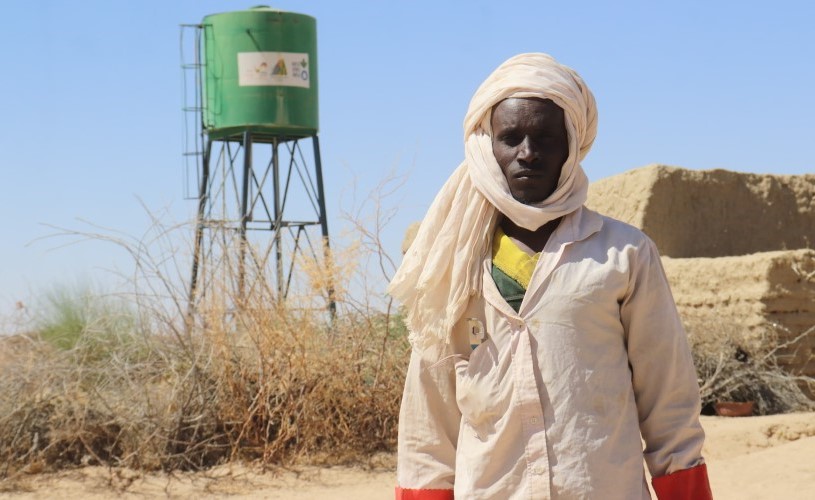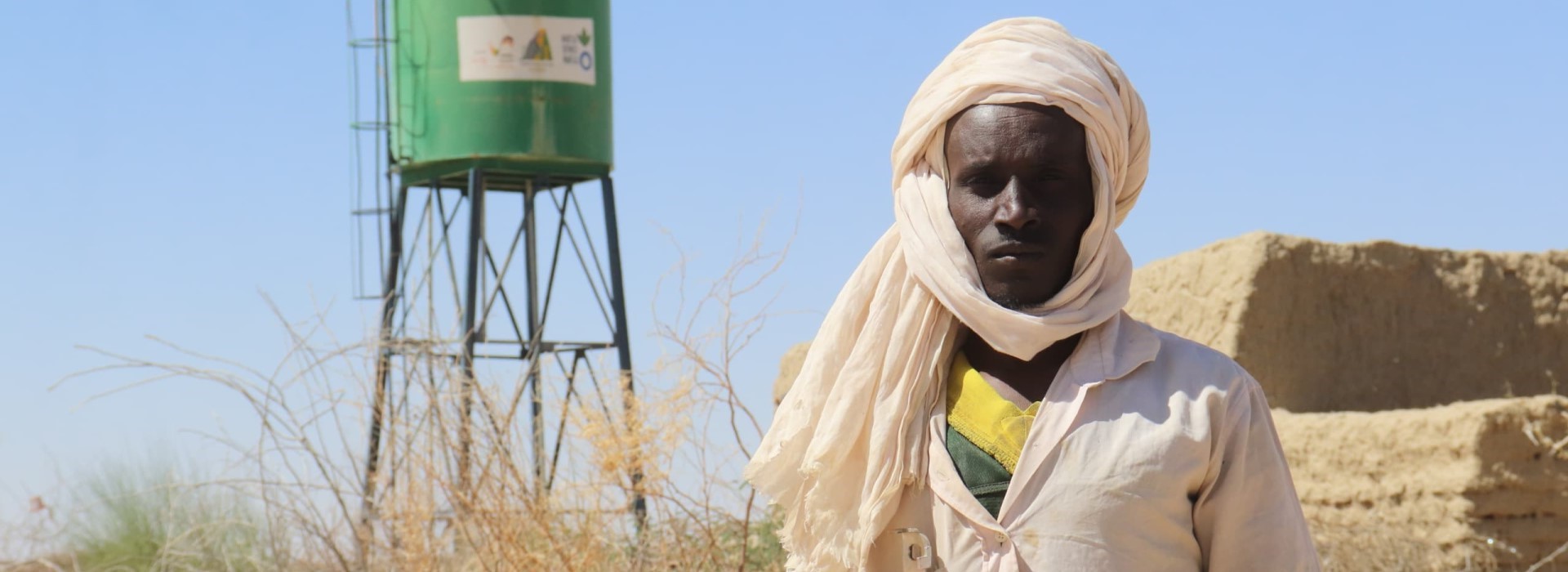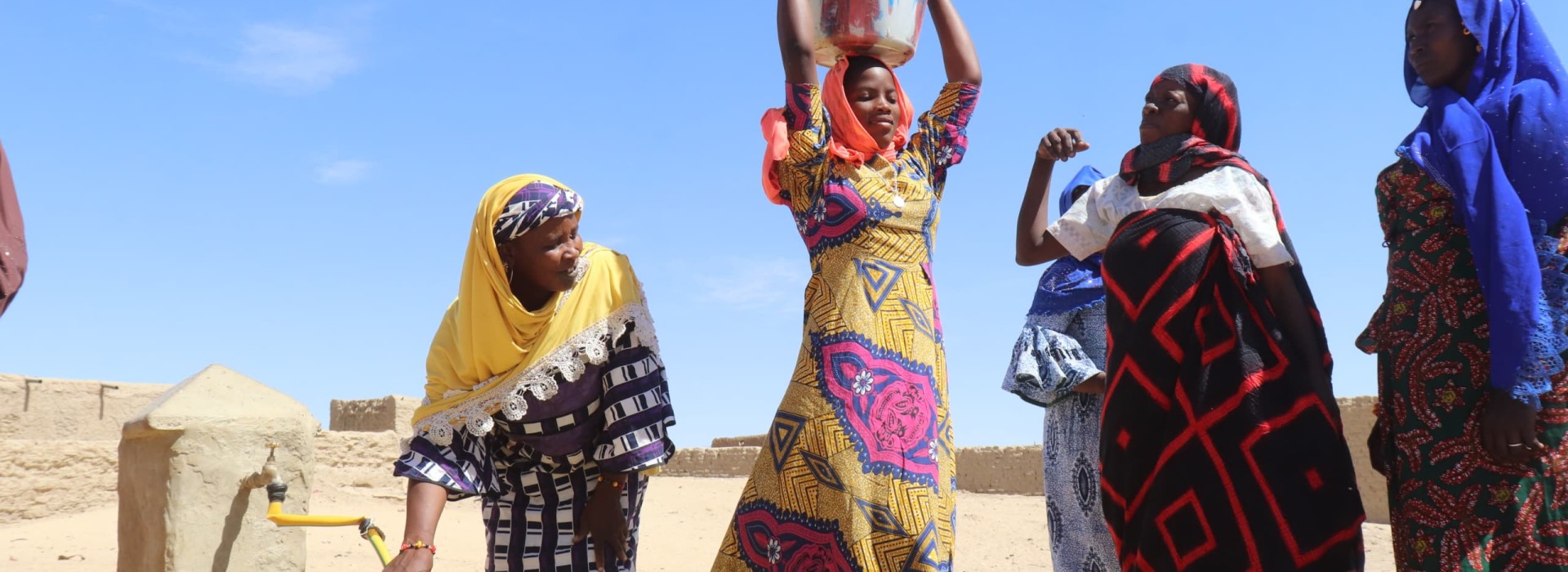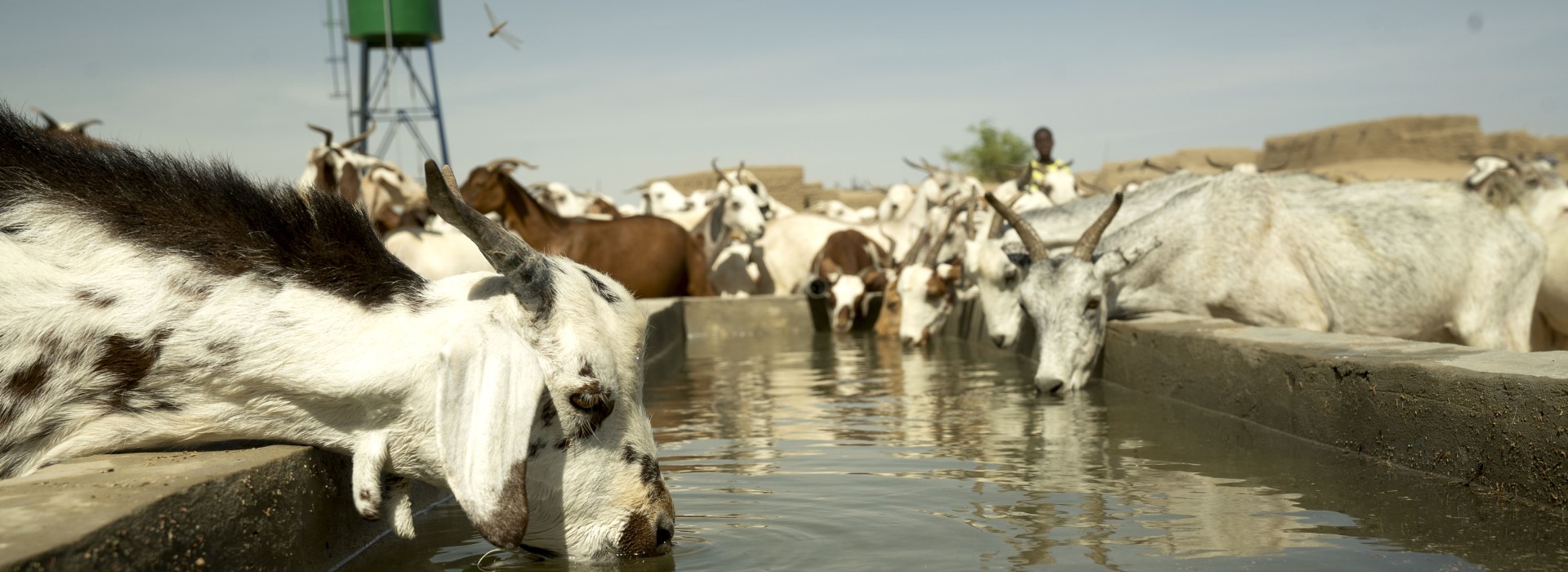

Security, reconstruction and peace: Comprehensive solutions for villages – more stability for the region
Scarce resources exacerbate conflicts. A holistic approach offers solutions.
The Water-Energy-Food (WEF) Nexus is a solution for managing scarce resources. GIZ is using this comprehensive approach to strengthen communities in Mali, thereby reducing competition for resources in a fragile region.
In the shimmering heat of Alphaou Taraba, a remote village in the Malian region of Timbuktu, Ibrahim Yatara is filling a bucket with fresh water – a scene that would have been almost unimaginable a few years ago. ‘In the past, we had to fetch our water from Lake Takara – for people, animals, everything. But the water was dirty and scarce. Today, we have enough for everyone,’ says Yatara, looking over to the water point that now ensures a secure supply for the village throughout the dry season.
Things began to change in 2018, when the Deutsche Gesellschaft für Internationale Zusammenarbeit (GIZ) GmbH and its partner Action Contre la Faim (ACF) installed a solar-powered water point that pumps water from a depth of up to 50 metres. In 2021 it was developed further – along with clear rules for its use as drinking water and for watering livestock and irrigating the fields. For Yatara and his community, this was the turning point. Harvests grew, conflicts declined and incomes doubled.

Water, food and peace for the village
The villagers began to grow vegetables. With more water flowing, the tomato harvest rose from 13 to 23 tonnes per hectare. The community was able to more than double its onion harvest to 31 tonnes. Annual income grew from 842 to 1,900 euro. And not only that: the water point also put an end to disputes that had been smouldering for years. The village laid down jointly agreed rules, with newly trained ‘water point committees’ administering the regulations and ensuring compliance. ‘Today, everyone knows when they can use the water point. That keeps the peace,’ explains Yatara.
Progress like this does not happen by chance. It is the result of a targeted, holistic approach that brings together water, energy and food.
The Water-Energy-Food Nexus: sustainable resources, stable communities
The challenges faced by the Sahel region are complex. Climate change, water scarcity, population growth and social tensions are all forcing people to compete for resources. Rather than offering isolated solutions, the Water-Energy-Food (WEF) Nexus is creating peace-building synergies. Coordinating the planning process for water access, better energy supplies and food security helps to reduce conflicts.
Holistic approaches like this are already making an impact, especially in regions like Mali, where climate change is exacerbating social tensions. When people can access water on a regulated basis, this defuses local disputes, creates new prospects and strengthens trust within the community. ‘Sustainable resource use means stability – and that is the basis for peace,’ explains Ingrid-Gabriela Hoven, Managing Director at GIZ.

Solutions for complex international crises
The success achieved in Mali shows that holistic approaches are particularly effective in fragile regions. In a world where resources are becoming scarcer and conflicts and migration are closely intertwined, they improve the living conditions of people directly.
This is also relevant for Europe: if people have better prospects and good livelihoods in their home countries, this lessens the pressure to migrate. GIZ is making a decisive contribution here. With a large number of projects under way in the Sahel region on behalf of the German Federal Ministry for Economic Cooperation and Development (BMZ), it is creating employment and income opportunities for local people and strengthening peaceful coexistence.
